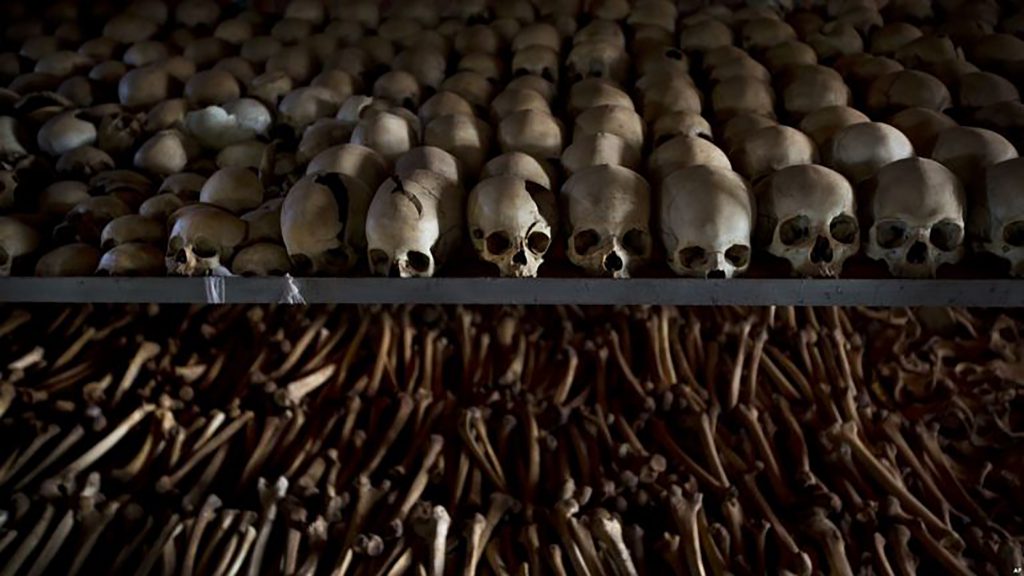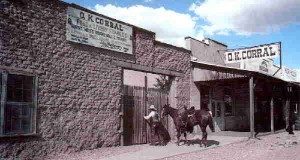In Rwanda there are two ethic groups: the Hutu, which makes up the majority of the population, and the Tutsi, the minority. Tensions between these two groups have been going on for years, so was not surprising that their conflicts would eventually escalate drastically. Despite their differences, they were actually very similar. The two groups have shared the same locations as to where they choose to live, the traditions they follow, and also the language that they speak. At a glance, they look very similar; but Tutsis tend to be taller and slimmer than the Hutus.

Hutu dislike for the Tutsi came about when the Belgians, who once dominated the region of Rwanda, considered the Tutsis to be superior to the Hutus. The Belgians gave the Tutsis better education, and even granted them better jobs than the Hutus. In 1959, a series of riots broke out in Rwanda. Many fled to Burundi, Tanzania, and also to Uganda.1 Unfortunately, 20,000 Tutsis were killed during the riots. In 1962, Belgium relinquished its power over Rwanda, and it was given its independence. The second President of Rwanda, Juvenal Habyarimana, who had been a dictator in power since 1973, and who was also a Hutu, began to lose popularity when the Hutus took over the government and the economy weakened. This is when Paul Kagame, a Tutsi, founded the Rwandan Patriotic Front (RPF) to try and overthrow the president. After much violence, the two sides, the RPF and Habyarimana, signed a peace accord in mid-1993. But on April 6, 1994, the President’s plane was shot down, killing both Habyarimana and the President of Burundi, Cyprien Ntaryamira; and things started to go badly wrong in Rwanda.
After the plane was shot down, the preexisting tensions between the Hutus and the Tutsis quickly flared up. No one knows who shot the plane down, but the Hutus quickly pointed the finger at the Tutsis. Conflict between the two neighboring tribes was nothing new in the central African nation of Rwanda, but the downing of the president’s plane was the final straw for the Hutus. Paul Kagame was accused by the leaderless Hutu government for being responsible for the plane crash and death of Habyarimana.2 Kagame denied this accusation and said that he had nothing to do with it, but news of the death of President Habyarimana spread across the country.
Shortly after the start of Rwanda’s genocide, Rwanda’s government initiated a campaign of retribution, and began to target Tutsis. In just hours, recruits from Hutu groups, government soldiers, and militias were sent to kill the Titus population, a Tutsi-minority tribe living in Rwanda. They were given radios to help them coordinate target groups of people. The recruits were sent into Tutsi cities where they started killing any Tutsi in sight with automatic weapons. For over the one-hundred days, more and more Hutus joined the killing squads, either by force of the government or voluntarily. They started to use machetes, spears, knives, and also masu, which is a thick club with nails sticking out of it. It even got to the point where everyday objects were used.3 They would have screwdrivers, bicycle handle bars, and hammers in one hand, and in the other a radio waiting to hear their next directive. They blew up churches where the Tutsi people were going into hiding to protect themselves, but the churches turned into death sites, trapping those inside when the churches were set on fire. Citizens of the Hutus were even being forced to go and kill the Tutsi people. They were given offers of food and money, and even told that could take the land of a Hutu if they killed them.

American President Bill Clinton did little to stop the massacre, even ignoring the obvious warnings about the killing that would take place after Habyarimana’s plane had crashed.4 Even other countries, like France and Belgium, along with the United States and the United Nations, knew what was about to occur, and wouldn’t take the initiative to try to stop it. For weeks these countries refused to use their moral and political authority to go against the genocidal government of Rwanda. The United States could have done much more to help out a country that was in need. Even a little bit of help would have been something, and maybe a significant number of people wouldn’t have lost their lives. While the American Congress was looking to the President to take action, Clinton was looking to the United Nations to take action. Since nothing was being done, sadly the killing just continued.
The only reason the genocide in Rwanda ended was because of the determination of the RPF. They fought back against the killing squads, and defeated the government’s soldiers. When they took control, Paul Kagame became the Vice President and Minister of Defense. With everything said and done, 800,000 Tutsi men, women, and children were killed from roughly 200,000 participants.5 There were 75,000 children that became orphans. Between 250,000 and 500,000 Tutsi women were raped, resulting in around 20,000 children being born as a result. The HIV virus and AIDS were used as another weapon, with 67% of the women that were raped being infected. If someone would have stepped up before this all unfolded, this would have been prevented and so many people wouldn’t have lost their lives or experience life changing events.
- Samantha Power, A Problem From Hell (New York: Basic Books, 2002) 342-347. ↵
- Samantha Power, A Problem From Hell (New York: Basic Books, 2002) 335-339. ↵
- Encyclopedia of Political Communication, 2008, s.v. “Rwanda Genocide, Role of Media,” by Frank Wittmann. ↵
- Samantha Power, A Problem From Hell (New York: Basic Books, 2002) 353-361. ↵
- Anna-Marie de Beer and Elisabeth Snyman, “Shadows of life, death and survival in the aftermath of the Rwandan Genocide,” Tydskrif vir Letterkunde vol. 52 issue 1 (Autumn 2015): 18. ↵



75 comments
Diego Terrazas
It is a shame many countries just sat back and watched this happen. The American government was waiting for Clinton, but Clinton was waiting for the UN to take action. With this sort of situation, action would never be initiated. This reminded me of a documentary I saw on this quite a while back and I cannot believe such a horrific event is not well known.
Daniela Martinez
previously I’ve had to read the Rwandan genocide. this was a horrible thing that happened in history. this event claimed the life of many. it is saddening that no one did anything to help stop the horrific events that were happening.
Stephanie Silvola
This incident is saddening to remember. Thousands of men, women, and children were killed everyday by the hands of their rivals, and nobody did anything to stop it. It is sickening to think that another country could have helped even a little bit. Many children were orphans and HIV rates went high. I am relieved that it did end though, although a little late. This article was written well along with the statistics and facts given to provide a true article and not a fabricated one.
Jabnel Ibarra
The Rwandan Genocide is a horrific and tragic event that unfortunately embodies just what horrors the human race is capable of. I actually didn’t the know that the events of the genocide occurred because of Belgian colonialism. Its saddening to think that we would still see the effects of European imperialism more than two centuries after the end of the colonial era.
William Ward
It seems like the fight for equality and respect is being fought all over the globe, but with so many causalities is any of it worth it? The sacrifices they all made is unfathomable. One point of this genocide is just how few Americans know of it. How is it I had never even heard of this holocaust level event?
Miranda Alamilla
The Rwandan Genocide is something that nobody wants to read or think about, but it happened and it is something that we need to discuss. It’s hard to know when it is okay to cross the line in helping another country because of state sovereignty, but we must also ask if these states are violating human rights. I do believe that if other countries had helped, it could have been slightly better; but, where do we stand between state sovereignty and the responsibility to protect?
Jason Garcia
We read about genocides like the holocaust as if they were so long ago. This is one of the more recent ones that I know about and this maybe gives students some perspective. It breaks my heart to read about how two people from the same country can perform such acts on each other. I have seen plenty of people that protest because America “gets involved in problems that are not our” but I think we have the duty to help. The fact that Clinton didn’t really help makes me think about these people. I am inspired by by the people that fought back and actually helped their country
Auroara-Juhl Nikkels
It is so sad to think that the other powers in the world did nothing to stop this horrific event. I am always shocked to see how humanity destroys itself. They taught us a little about the Rwanda’s Genocide and your article was just as informative as what they taught in school. So many people lost their lives, and it could have been stopped.
Regina De La Parra
I find it very sad how much a population can hate another population to the level of killing them and wanting them eliminated. I know that countries have what its called sovereignty, I still cannot believe how other states did almost nothing to stop this. This is a horrible part of human history that should never be forgotten and actually should have been seen in the news more. Good article and information.
Vanessa Tombo
I was dumbfounded by the number of people in my circle of friends who knew nothing about the Rwandan Holocuast. I have started to question the notion of education and how selective schools have become with their curriculums. This article was very educational and highly suggested to all my friends. One would have thought that after the loss of many lives in Germany during the Hitler’s reign that the world would have learned that their delay in intervening was paid for in the loss of many lives. One would also think that due to the history, major powers would feel compelled to make sure that human life would not be lost in such an atrocious again. The Rwandan Genocide clearly demonstrated that the world would once again delay their intervening (in this case, not even show up). If it was not for the RPF militia the Hutu’s would have succeeded in ethnically cleansing an entire race. As my parents often say “Just because something is not happening in your backyard it doesn’t mean that you do not hold some responsibility. Especially if you were aware.” America and other Powerful nations have so much blood on their hands and perhaps this why some of my friends have not heard about the Rwandan Genocide. Anyhow, I wonder how world history is taught in other parts of the world. Do they teach about the Rwandan Genocide?